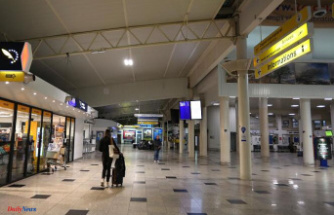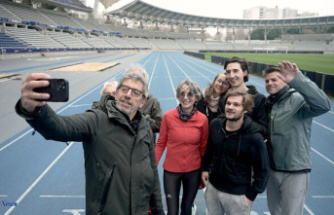Authorities trying to provide relief to the vulnerable, including low-income older people and those living outdoors, are mindful of a record-shattering heat wave in late June that killed hundreds in Oregon, Washington and British Columbia when the thermometer went as high as 116 degrees Fahrenheit (47 C).
Portland temperatures hit 102 F (39 C) late afternoon. More heat was forecast for Friday. It was even hotter than Phoenix, where temperatures reached a record-breaking 100 F (38 C) at the highest. Highs in Seattle were in the 90s, despite the fact that many people don't have air conditioners. On Thursday, the highest temperature in Bellingham, Washington was 100 F (38 C), the highest ever recorded.
Other parts of the United States were also affected by this week's scorching heat. According to the National Weather Service, heat warnings and advisories are in place from the Midwest to the Northeast, mid-Atlantic and Northeast through Friday. And in Michigan, heavy rains brought flooding, leaving nearly 1 million homes and businesses without power at one point Thursday in the hot weather.
Portland's nonprofit organization that helps the homeless and people with mental illnesses used three large vans for cooling water and other items to the homeless camps along the Columbia River, east of the city.
Kim James, director for homeless and housing support at CascadiaBehavioral Healthcare, stated that the effort was crucial because many people experiencing homelessness don't want to go to cooling centres.
Scott Zalitis, who was sweating profusely in the heat, devoured lime-green popsicles that were given out by the group. He also told volunteers that the temperature at the campsite had reached 105 F (41 C) on the previous day. He couldn't find any food left in his huge cooler, so he emptied it.
"It's miserable. It's unbearable. It's too hot. It's too hot even in the shade," Zalitis said. He was homeless after the apartment he sublet burned to the ground in an electric fire. "You want somewhere cool and as cool as you can."
The encampment was made up of rusted cars and RVs, along with tents and garbage piles. It was a stark contrast to downtown Portland where pedestrians were able to cool off running through large fountains in riverfront parks.
Luna Abadia (17) was training with her Lincoln High School cross-country team when they stopped at the fountain for a few moments. She said that although they normally train at 4 pm, in recent weeks they had to change it to 8 am because it is still too hot.
"It was extremely hot, lots and lots of sweat. "That's something that we noticed over the past week," Abadia stated.
Oregon Gov. Kate Brown, the Oregon Governor, has declared a state emergency and activated an emergency operation center. This was in response to potential disruptions to transportation and the power grid. Cooling centers have been opened by the city and county governments. Public library hours have been extended and bus fare waivers for those who are going to cooling centres has been made. The state has a 24-hour helpline that can direct people to the closest cooling shelter or give them safety tips.
Back-to-back heat wave, combined with an extremely hot and dry summer, is causing havoc in a region that sees summer highs hovering around the 70s and 80s. Intense heat waves and a historic drought in the American West reflect climate change that is making weather more extreme.
"For the heatwave, at this level it is new territory," stated Dan Douthit of the Portland Bureau of Emergency Communications. "We are known for having earthquakes, fires, floods, but heat waves seem to be becoming a serious emergency."
Abadia stated that the changes caused by climate change in her life have prompted her start a youth-run organisation to get more young people involved with the issue.
She said that climate change was all she's been thinking about the past few weeks. "This heat wave, and the wildfires that we experienced here last year -- and around the globe -- have been a fresh reminder of what's at stake and the urgent action required."












